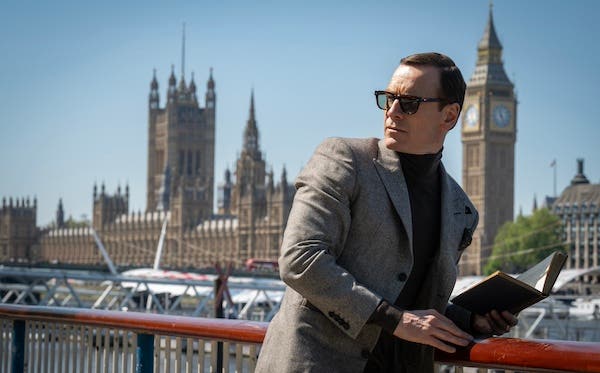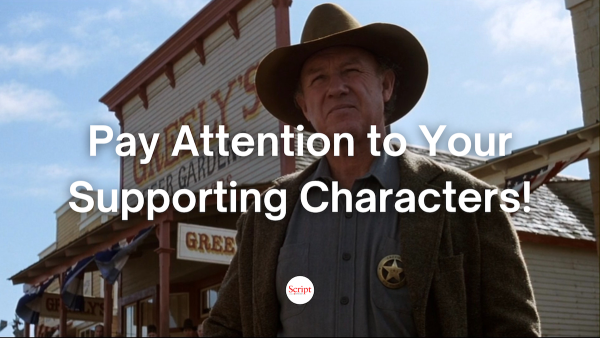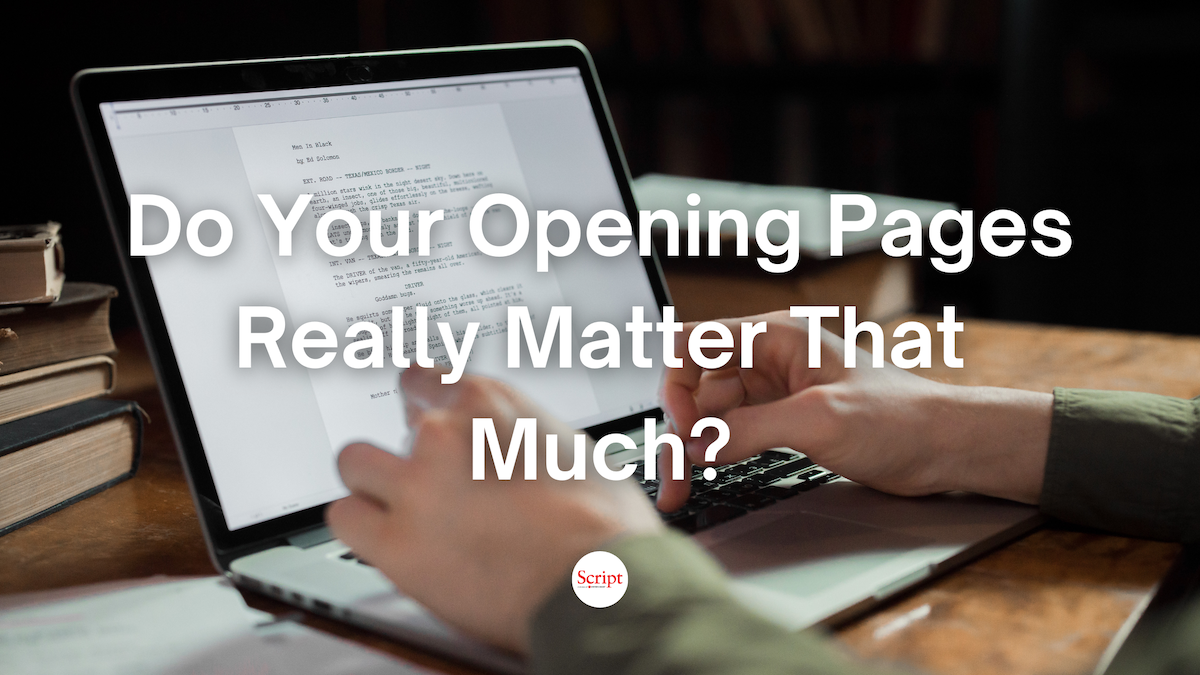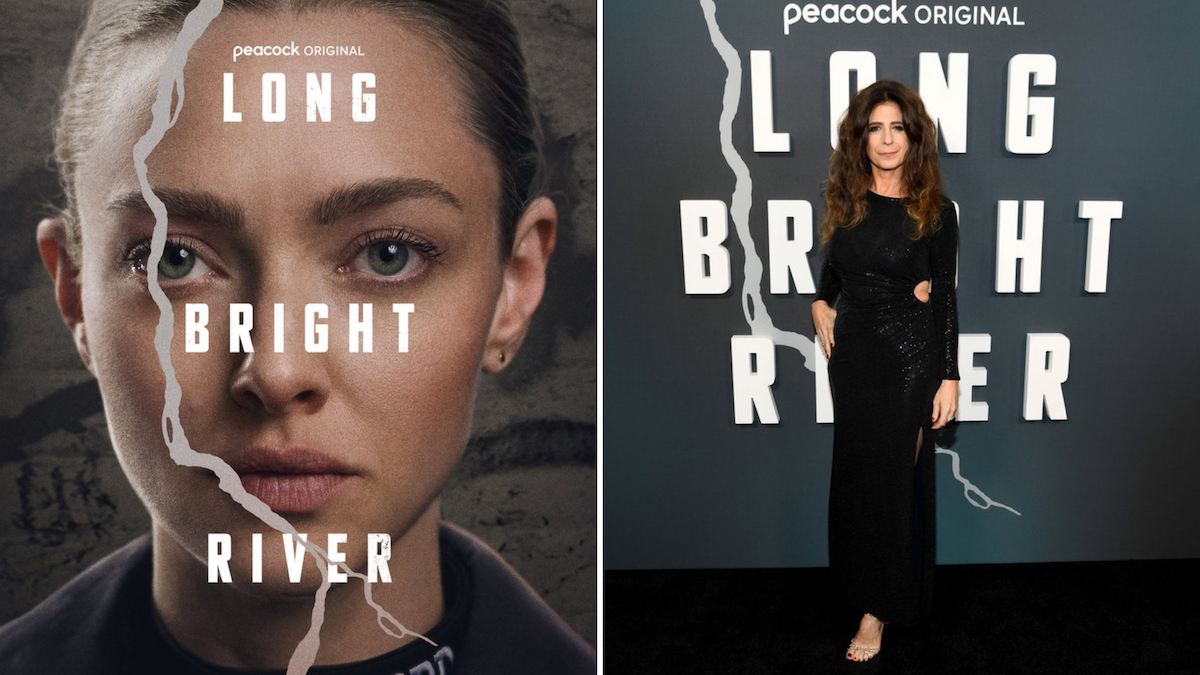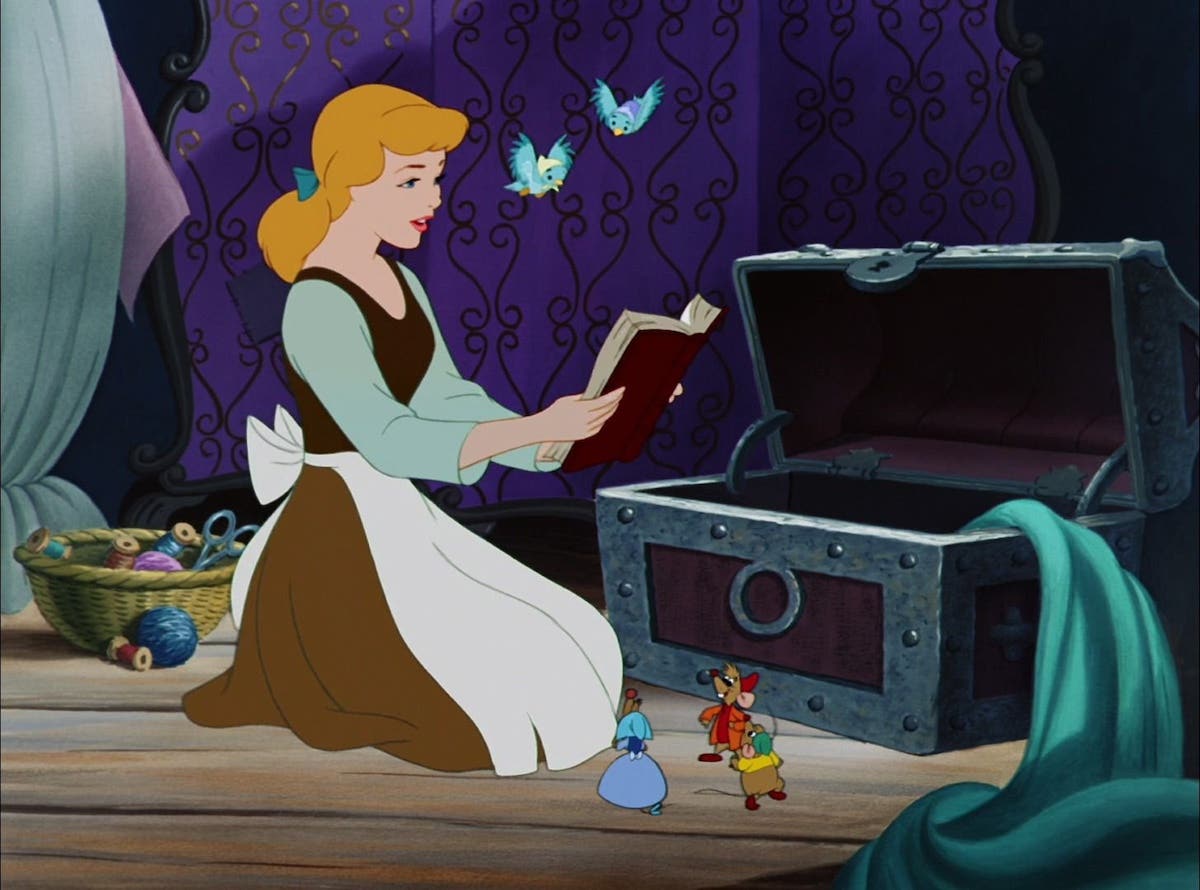Creating Characters: The Behavioral Paradox
Character or characterization has been described as contradiction. Although this is the truth, it is – crucially – not the whole truth. The first thing to understand about character is: Character…
Character or characterization has been described as contradiction. Although this is the truth, it is – crucially - not the whole truth. The first thing to understand about character is:
Character is created through exploration.
Character exploration occurs through presenting the hero with a challenging situation; a dilemma that each individual person would handle differently. The way in which the hero chooses to deal with this dilemma, characterizes him by revealing to the audience a particular virtue.
The hero normally reacts in a way far superior to that of a normal human being – with both the course of action and the execution of the chosen course. We envy them for this quality, and, as an audience, we grant them this fantastical authority because it is the making of great fiction.
Let’s set-up a situation for a hero now: Our hero Howard is waiting on a busy railway platform. Opposite him, on the adjacent platform, a 9 year-old boy suddenly falls onto the track. Howard instinctively looks to see if a train is coming - there is! A train is heading full pelt towards the injured boy...
How Howard reacts to this event will tell us a great deal about him: Will he panic or stay calm? Will he be the first to act or wait for others to intervene first? If he does help how will he go about it? Will he yell to a station assistant, fall to his knees and pray to God, or jump down on the track to save the boy while risking his own life?
Each of these reactions gives us a different sense of character – a different Howard. We will be able to tell - among other things - if he is brave or cowardly, authoritative or timid, selfish or selfless. In this scenario, lets say that Howard - without hesitating - jumps onto the track, runs to the other side and lifts the young boy to safety, all in time before the train rolls into the station. From the way Howard has reacted to this situation, we can deduce that he is selfless, heroic, brave and humanitarian.
Let’s say, after getting the young boy and himself to safety, back onto the platform, the following dialogue continues:
Howard pats down the Boy’s dirty clothes...
BOY: Thank you so much, mister...
HOWARD: You okay there, son? You scared me a little.
BOY: Oh, Mister, I’m so sorry. I can’t thank you enough.
HOWARD: Oh, that’s alright. I needed waking up this morning.
BOY: But your clothes are dirty!
HOWARD: Yours too! But as long as you’re okay, I am.
BOY: That’s real nice of you, Mister.
HOWARD: It’s good to be nice. You take care now!
BOY: I will!
Howard skips joyfully to the exit.
You probably cringed while reading the above dialogue; and I don’t blame you. Bland character backed up by stale, on-the-nose dialogue... There's nothing to pique the interests of even the most ardent of story lovers. More adjectives to describe Howard: friendly, modest and humble. Essentially, more positive attributes. Our hero is good to an almost sickly level. The above exchange has not developed our hero, and certainly not made him interesting. Presently, he simply does not feel human. Let’s re-run the above exchange, starting from the top: Howard gets the young boy and himself to safety, back onto the platform, the following dialogue continues:
Howard seizes the Boy by his collar and SLAPS him hard across the face.
BOY: Ouch!
HOWARD: The train woulda hurt a lot more!
BOY: I didn’t mean-
HOWARD: How ‘bout not meaning to fuck around on train platforms?
BOY: I’m sorry...I’m sorry...
HOWARD: You sorry about the state of this fucking suit? Well, are ya?
BOY: Yes...
HOWARD: Explain that to the guy interviewing me...
BOY: I’m really-
HOWARD: Fucking kids....
Howard turns and stomps to the exit.
Adjective to describe Howard’s actions in the above exchange: Thuggish, cruel, brutal, rude and selfish. Look back at the list of adjectives we initially assigned to the child saving man: Selfless, heroic, brave and humanitarian. It would seem that the two sets of adjectives are at odds with each other – they are in contradiction. Our hero has exhibited two conflicting character traits, two differing sides to his personality. Crucially though, as an audience, we understand why: Howard had to be brave and put his own life in danger due to the boy’s carelessness, resulting in him being angry. He is frustrated that his (probably nice) suit is now dirty for the rest of the day. And to cap it off, he is late for a job interview. As Human Beings, we empathize with his feelings, even if we do not sympathize (or agree) with his actions: It’s human to be selfish; it’s human to be upset about dirty clothes; it’s human to want to be on time for a job interview. As illustrated in the first example, it is NOT human to save someone’s life and think nothing of it and it is NOT human to have no regard for your own safety - even at the expense of others. Now the character (to use a well-used term for when something in fiction ‘works’) rings true. His thought processes are justified, even though he has exhibited seemingly contradictory behaviors. Although the above example is rather elemental, one can still see that - apart from feeling more human - Howard is more complex, multi-layered and interesting than before. Howard’s character has been developed. This is because he has behaved PARADOXICALLY – he has exhibited justified contradictory attributes:
Character is the juxtaposition of justified contradictory attributes.
The key word in the above sentence is JUSTIFIED. It is not enough for your character to exhibit solely contradictory attributes; every contradiction must be justified. The reason for this can be explained by simply looking at a dictionary definition. Contradiction is defined (for our purposes) as:
‘A person, thing, or situation in which inconsistent elements are present.’
Applied to a fictional character, this ‘inconsistent’ approach produces an irrational, erratic and ungrounded person who no human could relate to or understand. Indeed, many poor screenplays feature this breed of ‘character.’
Let us look now at the definition of a paradox:
‘A seemingly absurd or self-contradictory statement or proposition that when investigated or explained may prove to be well founded or true.’
This concept should be at the heart of your hero: Apparent contradictions that when investigated (or explored) prove to be true (or justified). ‘May prove to be well founded’ expresses the need for a case that needs to be argued for. Indeed, this is exactly what a writer does for a character – explains (or makes a case for) the character’s contradictory actions. When the audience follows the hero, the writer should lead them beat-by-beat, moment-by-moment through the character’s journey and be able to track every subsequent thought process and emotional change. No matter how many contradictory attributes the hero exhibits, each one is justified from the audience’s standpoint - they are never left in the dark. This is why, in its simplest terms:
Character is Paradox.
This Behavioral Paradox Theory ensures your hero is complex and interesting. Ultimately, though – as mentioned above - it ensures your hero feels human. This is because the concept is seeded in human nature: Human Beings are not categorically good OR bad, strong OR weak, intelligent OR stupid; Humans behave contradictorily. They are morally upstanding in some instances, while morally flawed in others; emotionally strong in some situations, emotionally weak in others; intelligent or skilled in one discipline, yet challenged or clumsy in others. In this way, Human Beings and fictional characters are the same. Vitally, though, there is one important difference between the two:
Human contradictions ARE NOT always justified;
Character contradictions ARE always justified.
In some instances there is no justified, rational, moral or logical reasoning for some contradictory human behavior. Nobody knows for certain why Dr Harold Shipman, a respected community doctor, turned out to be Britain’s most prolific serial killer. To truly understand (or justify) why Shipman murdered (at least) 250 people in cold-blood is impossible. The same must not be said about the heroes in your stories. The audience must see and be on board with your main character throughout the entire story. All contradictory actions must be justified in order for the audience to be in solidarity with the hero. An unjustified character contradiction leaves a void, something amiss within the story world – it does not ring true.
In essence, a fictional character can commit any kind of paradox providing it is justified. The more contradictory the justified actions, the more fascinating the character - but also the more difficult the character is to write. When characters fail to exhibit fascinating paradoxes, they are described as skin-deep, one-dimensional and predictable.
The ‘juxtaposition’ of conflicting character attributes can manifest itself in two ways. First, as with Howard’s story, they occur in succession: The hero exhibits kindness only to immediately follow with violence. Second, and similar to the first, the hero exhibits two contradictory actions simultaneously – at exactly the same time. This would occur, for instance, when a mother lies to her young son (bad) about his violent father in order to protect his feelings (good) [Dear Frankie, 2005]. Another example would be when an anti-hero robs a bank (bad) while being calm, polite and avoiding violence (good) [Out of Sight, 1998]. Or, going even further now, when a hero murders his wife (bad) in order to end her intense suffering caused by illness (good) [Amour, 2012].
Given how conflicting these ‘good’ and ‘bad’ attributes are, isn’t it surprising how well they sit with each other? They feel human, deep and complex. Within the paradoxes there is a subtext – a suggestion – to the inner conflict the character is almost certainly going through.
What should also be noted from these examples is how paradoxes can exist throughout the entire ‘moral spectrum’. From a relatively trivial ‘white lie’ to a grave murder, the paradoxes vividly portray the complex ‘human’ within the character.
There is a vast spectrum of behaviors and subsequent paradoxes available to a writer; below is a list of just some of them.
Although the list incorporates a number of opposites with predominately ‘good’ qualities on the left and ‘bad’ on the right, it is worth mentioning that some are more difficult to categorize than others. For instance, Liberal/Conservative, Quiet/Loud and Passive/Aggressive are not only subjectively good or bad, but require some kind of situational context in order to be classified outright. For this reason, I would encourage every writer to create their own list of attributes which they see as good and bad.
Essentially, though, the importance should not be with whether an attribute is good or bad, but actually the contradiction itself, regardless of the moral stand point. So, for example, whether being Conservative or Liberal is the ‘better’ attribute is not too important, as the attention should lay with the interesting paradox that arises when a character shows both liberal and conservative behavior or views. All that is required is an awareness of the many attributes and that they all have an antonym – an opposite.
Having such a list as the one presented above can be a great starting point for a writer when wondering how to develop a character further. For instance, if you have composed a scene where the hero has shown – as in Howard’s case above – bravery and cruelty in quick succession, you may be wondering where to take the character from here.
There are many directions a writer can take a character - and some directions will certainly be better than others, but an interesting and contradictory turn for Howard may be for him to be tender and shy. As you will realize, these are not polar opposites of bravery and cruelty, merely conflicting; and this is all you need them to be. You then need to think about how these attributes might present themselves. Perhaps Howard is on a first date? Through his possible inexperience with prospective partners, this may cause him to be shy, quiet, nervous and overly tender. Again, this paradox hints at Howard’s internal conflict and progresses his character development.
Fundamentally, a writer should always be looking for the ‘B side’ to a character. Every time you display a particular virtue, think about an appropriate opposing virtue and how it might manifest itself. As you see in the example above, the paradox does not have to contain two polar opposite attributes. It can be paradoxical by association, as many attributes can be put into a similar bracket. That is, instead of perhaps portraying a politician as both DIPLOMATIC and TACTLESS (as per the table above), you may decide to have him be DIPLOMATIC and VIOLENT: a top Politician who hits his wife feels like a paradox that could ring true.
Because of the infinite landscape of paradoxes available, the unique potential for a given character is huge. Which paradoxes a writer chooses and how they materialize them not only plays a role in forming the character, but also the writer’s ‘voice’.
So far we have discussed BEHAVIORAL PARADOXES; paradoxes that have arisen through the character’s progressing inherent nature. But there is another overarching paradox present in almost all protagonists.
THE CORE PARADOX
Instead of conflicting character attributes, a CORE PARADOX is the in-built conflict between a character’s ‘ORIGIN’ and their ‘PRESENT’. A character’s Origin is normally classified by their upbringing, childhood, home-life or lifestyle. A character’s Present is how the character spends their days now, e.g. an occupation. The concept can be presented like this:
Core Paradox=ORIGIN (upbringing/childhood/home-life/lifestyle)
Vs. PRESENT (how the hero spends his days now; occupation)
To help illustrate this concept, here are some examples of Core Paradoxes in film and television:
Hedonistic Drug Addict/Dedicated School Teacher (Half Nelson, 2006)
Loyal Family Man/Violent Contract Killer (The Iceman, 2012)
Billionaire Businessman/Crime Fighting Vigilante (Batman)
Son of a Notorious Crime Family/Dedicated Undercover Police Officer (The Departed, 2006)
School geek / Superhuman crime fighter (Spiderman)
Mentally and Physically Challenged Student/Astronaut (Gattaca, 1997)
Teacher & Loyal Family Man / Crystal Meth Cultivator (Breaking Bad, 2008-2013)
Nazi Party Member/Jewish life saver (Schindler’s List, 1993)
Conman / Police Cooperator (American Hustle, 2013)
As you can see in the above examples, the Origin and Present are essentially two conflicting identities that exist within the same being. This ‘foundation’ paradox is crucial for spawning organic and intriguing Behavioral Paradoxes. I would encourage you to make a list of your personal favorite films/heroes together with their subsequent Core Paradoxes. This will enable you to get a feel for the Core Paradoxes that resonate with you most.
IN CONCLUSION
Although the primary focus of this article has concentrated on the leading character, it should be understood that the same principles can be applied to all the characters in your story - no matter how small the part.
The paradox theory ensures character development, inner conflict and a distinct personality, three incredibly important facets a hero must have in order for them to be great. No matter who your protagonist is – hero or anti-hero, sociopathic killer or human savior – the paradox theory ensures your hero is fascinating to their very core. Great character is what keeps an audience engaged to the very last second. No matter how ‘good’ or ‘bad’ the character might be, if the protagonist is paradoxically complex, they will be an absorbing lead.
Paradoxes are the easiest way to get away from the expected and enter the realm of the unexpected and surprising, without going into the stupidly outlandish. The land of the paradox is the perfect playground for your imagination to run wild.
Benjamin Broomfield is a screenwriting university lecturer based in London, England. He is also a script reader for a prominent feature film finance company and writes screenplays in his spare time. You can follow him on Twitter @BenBroomfield.
Related Articles and Tools to Help:
- Script Angel: Characters Under Stress
- Creating Unforgettable Charactersby Linda Seger
- The Taming of the Shrew: Writing Female Characters & Archetypes
Learn How to Create Dynamic Characters Actors Want to Play With This FREE Webinar Today!
Top screenwriting and film publication, founded in 1989, published by Active Interest Media. Twitter: @scriptmag


